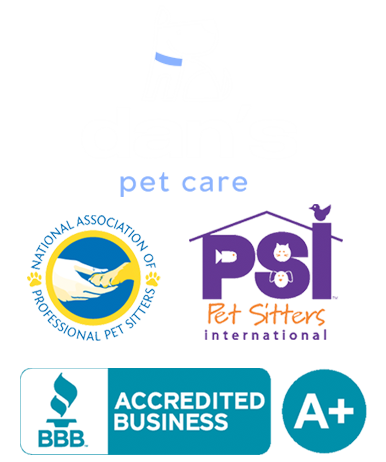We’ll get right to it: it’s time to talk about dog poop. It’s part of most dog owners’ daily lives, and at Dan’s Pet Care, it’s involved in our everyday work, too.
Dog poop might be gross, but let’s look at it from another angle. Your dog’s poop can provide a window into their overall well-being and help you understand how to care for them better. All dog poops are not created equal. At Dan’s Pet Care, we’ve seen all varieties, and believe us – there’s plenty of variety to be found. So, what are the different types of dog poop you might encounter, and what can they tell you about your dog’s health? Keep reading to learn more.
The rainbow of dog poop colors
Just like roses, dog poop comes in many different colors, and each color can have its own meaning. Pet care professionals agree that your dog’s poop should be chocolate brown. That might sound very specific, but picturing a candy bar can help you differentiate a healthy poop color from all the other possibilities. Let’s take a look at a few of those.
Red Dog Poop
A reddish color to your dog’s poop is cause for concern. It often indicates the presence of blood, which can show up for a variety of reasons. Bright red can mean bleeding in your dog’s GI tract or colon, and this could be due to parasites, injury, toxic substances, inflammation or infection. Call your vet’s office if you see red stool, as they may need timely treatment.
Yellow Dog Poop
Yellow poop might indicate that your dog isn’t tolerating the food you’re using. It may also indicate liver disease or gallbladder problems, or even parasites and disease.
Green Dog Poop
This one isn’t necessarily as concerning as the first two, but it could indicate that your dog has been eating plant matter. Dogs often eat grass or other foreign material due to dietary insufficiencies or stomach discomfort. Look for other signs of an upset stomach, like vomiting, diarrhea, or reluctance to eat.
Black Dog Poop
If your dog’s poop is black, it could be from old blood that’s stayed in your dog’s GI tract for a while. Especially if you notice signs of any other GI trouble, talk to your vet about treatment.
Diarrhea: a sign of trouble
Diarrhea isn’t a disease on its own. It’s often caused by stress, eating the wrong things, or other external factors. However, loose, watery poop can signal that your dog has a disease, and it could be a serious one.
Five of the many possible causes of diarrhea in dogs include:
Parasites
IBS
Cancer
Infections
Giardia
Inflammation
Dogs usually recover from diarrhea on their own, but don’t take any chances. Call your vet if you see diarrhea so they can ask you some questions and determine your dog’s risk.
UFOs: Unexpected foreign objects
If your dog’s poop seems to have something in it besides poop, we’ve got some bad news: it’s time for you to take a closer look. Many of the substances commonly found in dog poop can require a resolution on your part. What might you be looking for? Here are a few of the most common culprits.
Parasites in Dogs
That’s right – if you see white spots (or recognizable worms) in your dog’s poop, it’s time to take action. Some parasites are too small for the human eye to see. But a few visible parasites you might expect to find in dog poop include:
Roundworm
Tapeworm
Whipworm
The good news is that your vet can deworm your dog and take care of the issue. However, if your dog is contracting parasites, it’s a sign that your preventatives aren’t working (or that you need to start your dog on preventatives in the first place). Flea, tick and worm medications aren’t just important to protect your dog from parasites themselves. They’re also essential for preventing parasite-borne illnesses, which can seriously impact your dog’s health.
Inappropriate ingestion
Dogs like to eat, and sometimes they have a hard time determining whether something is safe for consumption. If your dog has eaten rocks, small toys, dirt, yarn or thread, or any other foreign object (we’ve seen it all), prompt medical advice is needed. Otherwise, your dog could experience bowel perforation or obstruction, or other serious issues.
If your dog ingests a dangerous substance, you’ll need to take preventative measures to keep it from happening again. Supervise your dog carefully and remove risky objects from their environment. You can also coat any tempting items with a spray that tastes bad.
Meet the dog poop pros!
We don’t mean to brag, but at Dan’s Pet Care, we really know dog poop. In fact, we offer pooper scooper services, relief walks, and a complete selection of other pet care services to meet every need your dog has. Call us today at (516) 551-1613, and let us help you give your dog the very best care.





